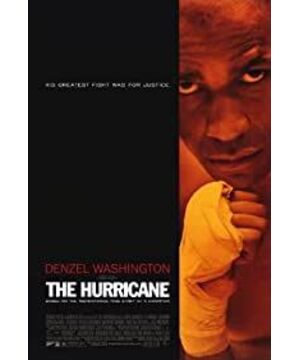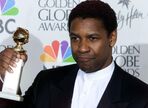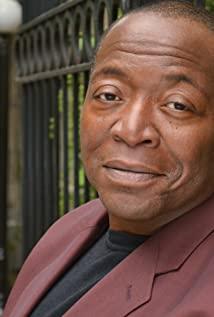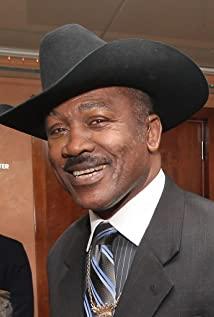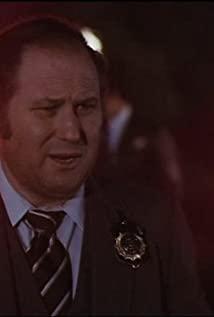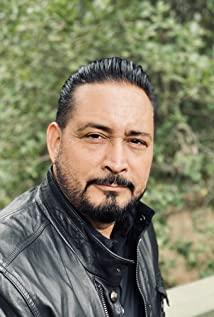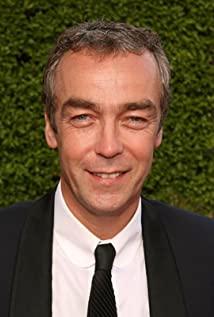"Hurricane" is a song from Bob Dylan's 1976 album Desire and one of his few protest songs in the 1970s;
"Hurricane" is the name of a movie starring Denzel Washington in 1999. This film won the Berlin Silver Bear and Golden Globe Awards for Best Actor for Washington;
"Hurricane" is also a podcast launched by the BBC in 2019, with 13 episodes totaling 40 hours;
These are all related to Rubin Carter, a middle and heavyweight boxer from the United States and Canada. "Hurricane" is his name in the boxing world.
He was wrongly convicted of murder and was released after 19 years in prison.
Hurricane, 1999
Let’s start with this very successful biographical film.
The film starts at a very important turning point in Carter's life-in 1966, Carter and his black friend John Artist who drove for him that night were charged with a triple murder in a bar in Paterson, New Jersey. He and his friends were convicted and sentenced to life imprisonment. After nearly 20 years in prison, his sentence was reversed.
The script adopts a two-line parallelism. The main line is Rubin Carter's life from 1966 to 1985, his struggle with triple murder, and how he coped with nearly 20 years of unjust imprisonment; his life has changed since he received education.
Carter insisted that he was innocent while in prison. He used himself against unfairness. In his later biography, "The Eye of the Hurricane", he wrote: "For an ascetic monk, he can be controlled by his mind. The body knows nothing about pain, heat, cold, time, or hunger. , But the soul knows. When our ability to bear is much greater than we realize, the mind will impose its conditions on the body." He insisted on studying the law in prison, in order to defend himself, while writing This was the first autobiography The Sixteenth Round that affected Lesra Martin and Bob Dylan.
He rebelled against the rules, because he did not want to wear prison uniforms (he insisted that he was innocent and did not want to be treated like prisoners), was locked in a "hole" where the sun could not be seen, and still refused to give in. He broke the rules, such as growing a beard, wearing a watch, a ring, and wearing his own clothes. In order to cope with constant hunger, he has to control his desires, which means controlling his body and mind-stomach hunger, headaches, or seeing the sight of favorite foods. At the same time, as a boxer, he insisted on exercising in a small cell. He persisted in prison like Mandela.
At the end of 1974, Carter and Artist ushered in a short light-the two key witnesses in the original case withdrew their testimony separately and revealed that they lied to get sympathy from the police. Two years later, a police interrogation tape of witnesses surfaced. The New York Times exposed the case. The New Jersey Supreme Court overturned Carter’s sentence with a 7-0 result. Carter and Artist were released on bail. But they were only free for 6 months-they were convicted again in the second trial in the fall of 1976, during which time one of the witnesses overturned his testimony again.
Bob Dylan sang for him:
To see him obviously framed
Couldn't help but make me feel ashamed to live in a land
Where justice is a game
Another story line of the movie takes place in Lesra Martin. He is an African American youth from Brooklyn. His parents are drunk and living in poverty. He started working when he was ten to help support his family. Although he was still in school, he was semi-illiterate until he was 16 years old. After discovering his potential, a group of Canadian entrepreneurs offered to help him go to Canada. After being adopted, he came into contact with the autobiography The Sixteenth Round written by Carter in prison. He began to write to Carter, who was still in prison, and went to visit Carter in prison. After the visit, Martin persuaded his Toronto foster family to join in seeking Carter's fair release.
Although Carter was found guilty in a retrial in 1976, the appeal failed due to further convictions. But with the addition of Lesra Martin, people from all walks of life continue to protest and support the case. In 1985, the Federal District Court accepted the appeal again and ruled that Carter's second-instance prosecution was guilty of "serious violations of the Constitution" and that his conviction was based on racism, not facts . The original prosecutor refused to give up until February 1988, when a New Jersey judge officially dismissed the prosecution of Carter and Artis in 1966, finally ending the 22-year legend.
This is a happy ending.
The script is very fascinating. Carter's insistence on fairness in prison, and Lesra Martin's search and growth as a black boy outside the prison, echoed in parallel, and finally reached a climax of fairness and recognition. Denzel Washington’s performance also added to Carter’s personal charm.
After watching the movie, I typed "The Hurricane" in Google and pressed the search button, but found that, as the new pants sang, "Your favorite movies are actually coaxing you." Will deceive you.
Based upon a true story
In those reports on film adaptations, there are many details that have been overlooked by the film.
Carter's experience before his arrest is described in the film as a model citizen, a boxer and a civil rights advocate. But the fact is that Carter spent four years in prison for three robberies as an adult. These crimes later tarnished his reputation due to potential violent behavior and destroyed his career in this murder.
In the movie, his love with his ex-wife is beautified. In reality, even though he is married, Carter also had an extramarital affair. In addition, the film failed to cover his life after his release-Carter married Lisa Peters in Lesra Martin's foster family after his release, but the marriage was short-lived. In the early 1990s, he parted ways with the Toronto Regional Commune, which helped him fight for freedom.
Most importantly, in order to create the image of Carter being misjudged because of racial discrimination, the film will capture his detective to form a man who has been following him for a long time since he was 14 years old, trying to convict him. The fact is that the detective investigating Rubin Carter didn't know him until the shooting happened.
The film also downplays the actions of Carter's lawyers during his 20 years in prison, almost entirely attributing Carter's release to members of the Canadian Commune. At the same time, it understates the personal experience of John Artist, who was never the protagonist, but also suffered 15 years of imprisonment. His life was changed. He was tempted to testify against Carter in exchange for a reduction of his sentence, but he refused).
Although at the beginning of the movie, it is marked: This story is adapted from a real story, and some characters and plots are purely fictitious. But "Hurricane" is still being promoted as "a true story of the victory of an innocent man who fought for justice in the past 20 years."
OK, fine. Damn box office publicity.
Eye of the Hurricane
So, with the idea of wanting to know Rubin Carter's real life, I went to read his autobiography Eye of the Hurricane: My Path from Darkness to Freedom, published in 2011, and Mandela wrote a preface to this book.
In the book Carter wrote: "The more laws we are subject to, the less freedom we have. I live under the constraints of patriarchal law, American law, apartheid law, criminal justice law, military law, and prison law. So I have never been more free than a slave... No matter who you are, you are born in the prison of the world, a world full of sleeping people and a world of mechanical laws... From the physical, metaphorical or universal sleep prison The only way to escape is to wake up! "
" What prevents us from realizing this reality is not our ignorance of our own potential, but our ignorance of ourselves. Mark Twain once said, "What you don't know will not cause you trouble. "This is something you are certain, but it is not the case. We "think" that we know who we are and that we think we are conscious because we have been hypnotized and believe that our hallucinations are real. "
The book is not thick, more than 300 pages. The first half is his own prison journey, and the second half is the experience of Association in Defence of the Wrongly Convicted, an organization he founded after his release. The writing is very clear. If you have ever had a serious conversation with yourself, then you should easily agree with Carter's view in his later life (he died in 2014). He is a man who has a deep understanding of himself. This person has similarities and differences with him in his early years.
Carter wrote in his memoirs that when he was a child, he was beaten and kicked by his father for different reasons, but not abiding by some seemingly non-existent rules. But the old man said, " Father thought that if I didn't learn to give in, I would never survive. But he was wrong because I survived and I never compromised. But how could I hate someone who tried to destroy me? What about the people rescued from the movie? Did he see his repressed rebellious self in me? The mafia, the police, the school, the prison-it was all the same to him, and they were all white men who he didn’t know how to change. Part of the system. I grew up in ignorance, thinking that I and them are equal, but the laws of this country and everything else do not say that."
He did grow up under the apartheid system and was affected his entire life. He found boxing, and boxing found him. At the height of the Cuban missile crisis, he fought with a Cuban boxer in Madison Square Garden and quickly knocked him down. It was a moment of national glory. However, as his reputation grew, so did his notoriety. He admires Malcolm X more than Luther King (well, "Kuroshio" is also starring Denzel Washington). Violence is faith to him.
Carter mentioned violence in a 1964 interview (A Match Made In the Jungle), when he was 27 years old and had just made his mark in the boxing world. He said that he not only used his fists to fight back against society, but also used knives and guns, and he would fight back with all the weapons in his hands. When talking about the riots in Harlem that last summer (15-year-old African-American James Powell was shot by a white police lieutenant), he said to his friend: "Let's pick up the gun and go look for the police over there."
These are all recorded in the newspaper, but you can't tell whether these are real or his fiction.
As he used to intimidate other white reporters, when he was a child, putting a pistol in his pocket was as simple as putting a wallet in his pocket. He claimed that when he was a child, he would go to the streets with his partners, shooting pedestrians indiscriminately. Of course, these empty talks have not been verified or supported by the court case. But these unidentified words undoubtedly left Carter with a violent and dangerous impression in front of the police and the public. They said that even watching him on black and white TV and looking at his eyes hidden behind boxing gloves would scare many people.
"I do not enjoy harm or attack others, unless they mess with me. Then I will enjoy it. If you shall stir me, I'll kill you ( the If you Mess with Me, the I'm going to the try to the kill you. ) . When I am angry, I don’t have any principles, and I won’t let it go until the matter is over.”
Before he went to prison, he was a boxer who used violence as a weapon, and the charges for putting him in prison were obviously unreasonable charges. After watching movies, autobiography, Podcasts, and documentaries, I found more than a dozen reports on both pros and cons, but the image of Rubin Carter is not clearer than that of the brilliant character in the movie.
this is correct. You can't piece together his appearance from all the narratives, his boxing record in his heyday, 20 years of prison career, and insistence on running for unjust cases after his release... These are all fragments, a certain fragment of his life. .
Then I remembered the last paragraph in his book:
At the end of the book, he wrote:
"I just finished a speech to a group of people in a high school in Toronto. A young female audience stood up and asked me how I hope my life can be remembered. I paused for a long time because I Never considered this issue.
When I thought about it, I realized that people’s impression of me is not important. What really matters is how I remember myself. This self-remembering behavior saves me from sinking.
I answered her question like this: I used to be a professional boxer. I used to be a soldier. For a while in my life I was a criminal. I used to be a prison lawyer. I used to be the executive director of AIDWYC-a black angel. Today, I am the CEO of Innocence International. I was a writer and a doctor of law. I have experienced many things and still have many things to do.
But if I choose an epitaph to inscribe on my tombstone, it will simply say:'He was just enough.'
He overcame everything that was pressing on him in the world. He is strong enough not to give up on himself. His confidence in himself surpassed anything in this world. No matter what trouble his behavior causes him, he is old enough to stick to his beliefs. He can just create miracles, can wake up, can escape from the sleeping world, can regain humanity in the hell on earth. He is enough.
My young friend, so are you. "
Just enough.
A good story.
Just enough.
————————————————————————
Originally posted on the personal WeChat public account: a mountain monster (or search: Herringcat)
View more about The Hurricane reviews


